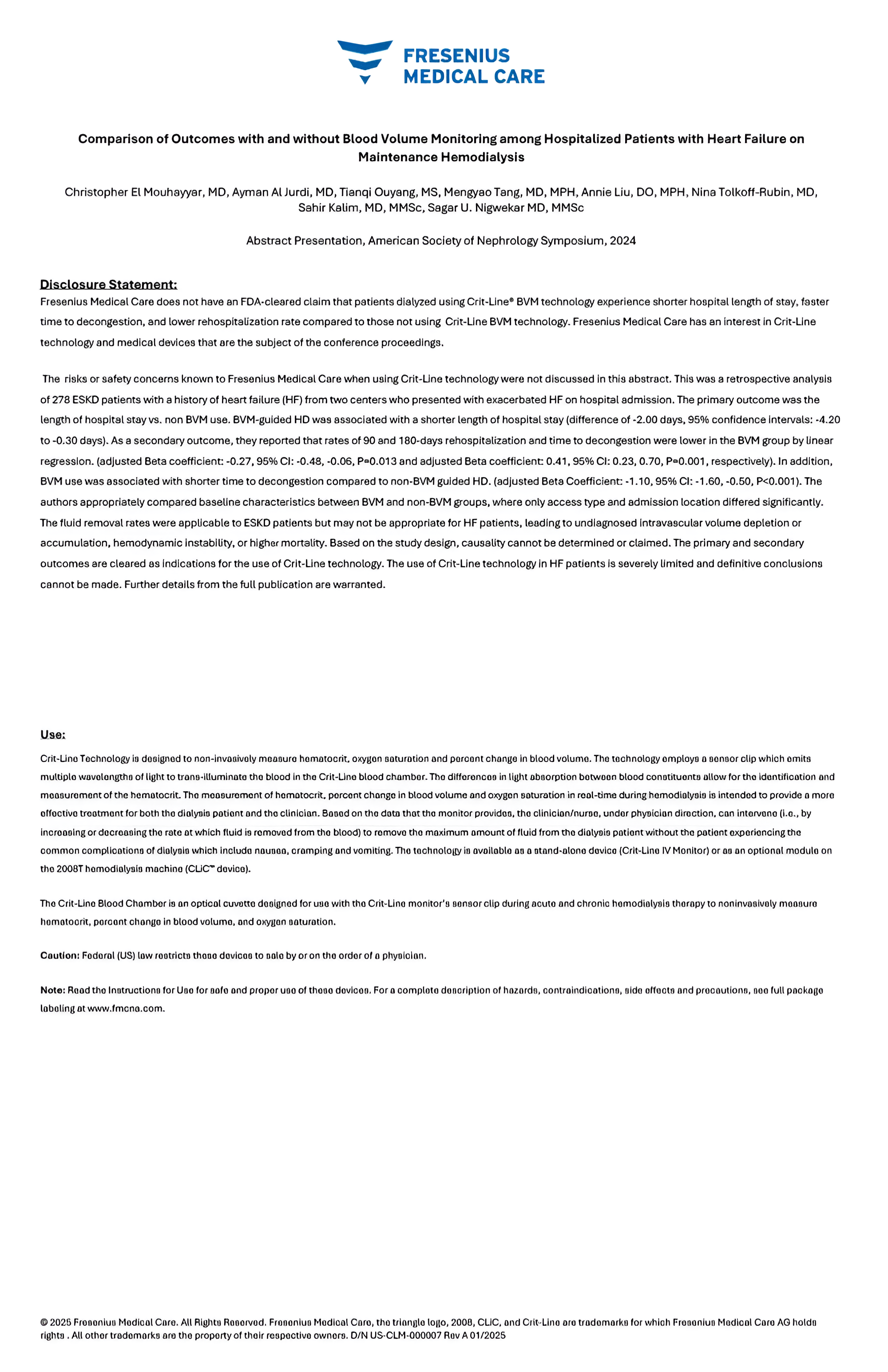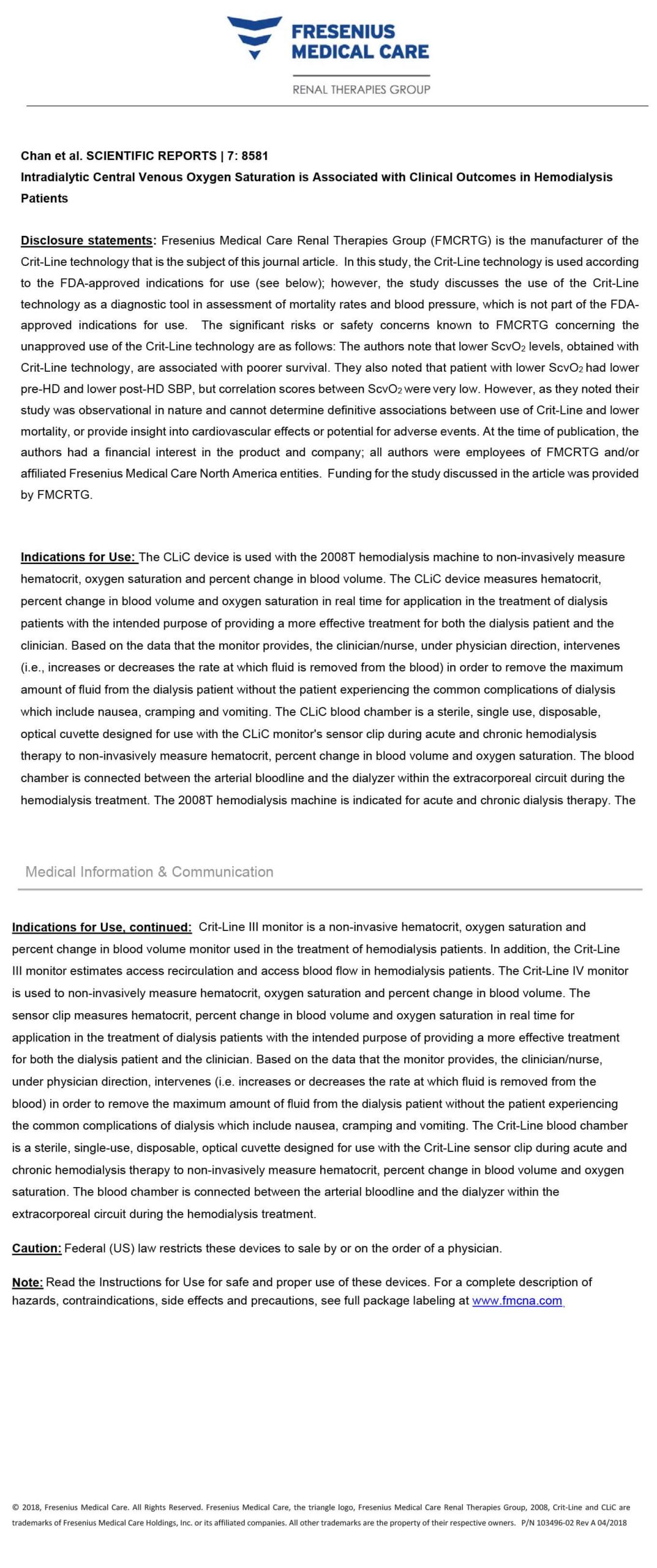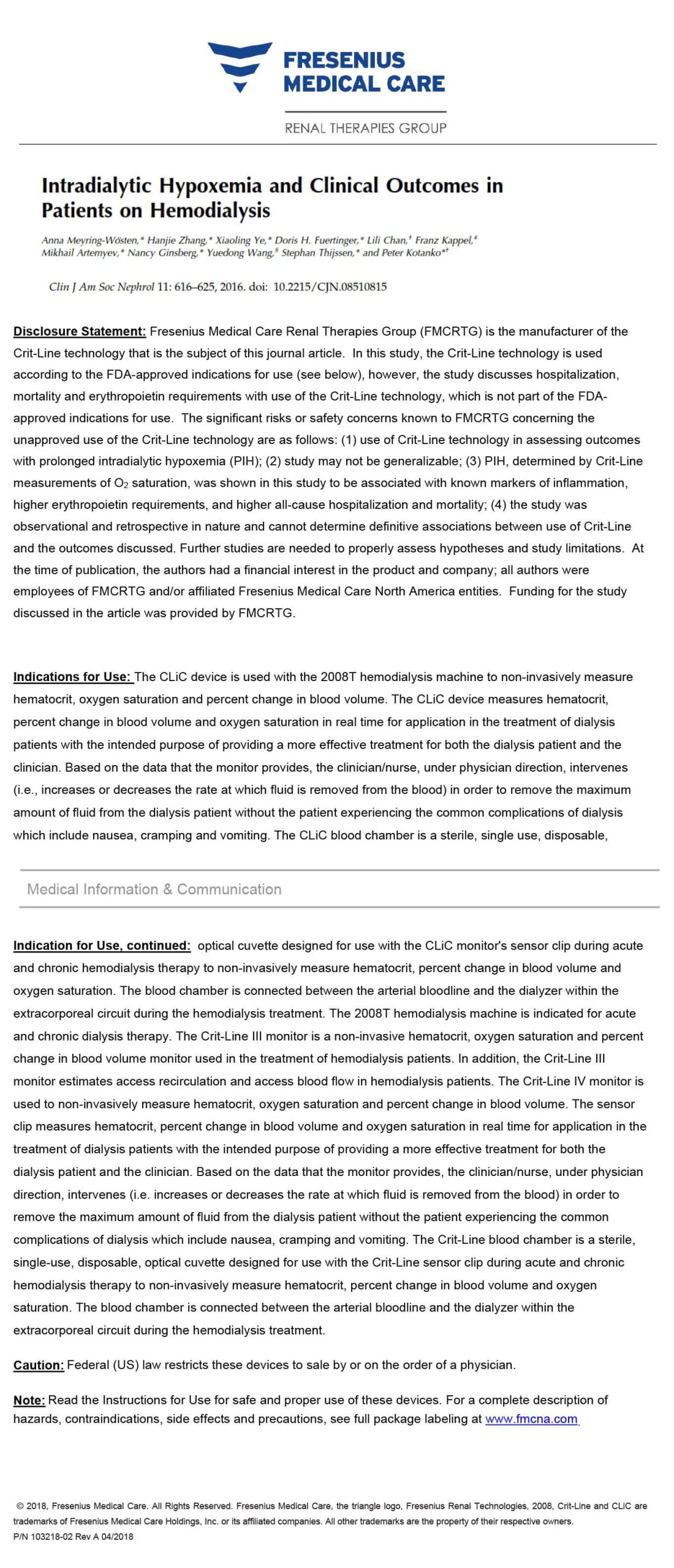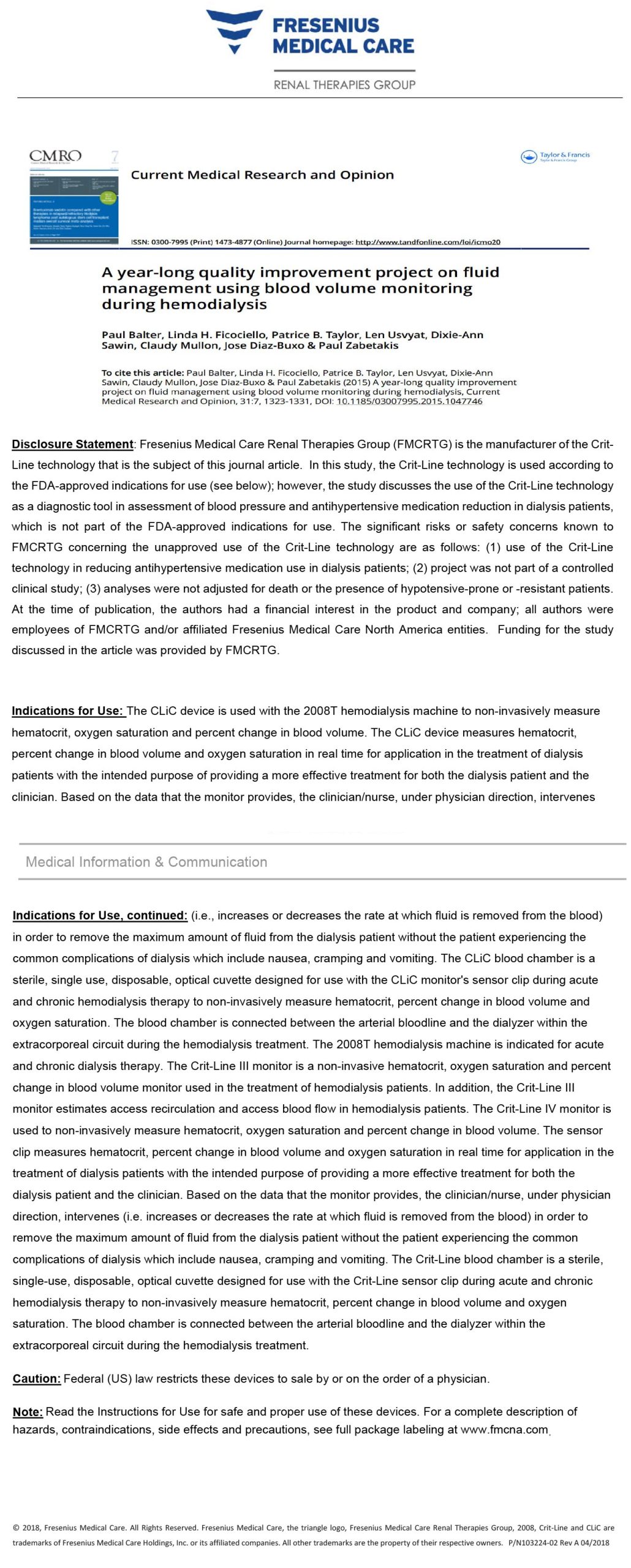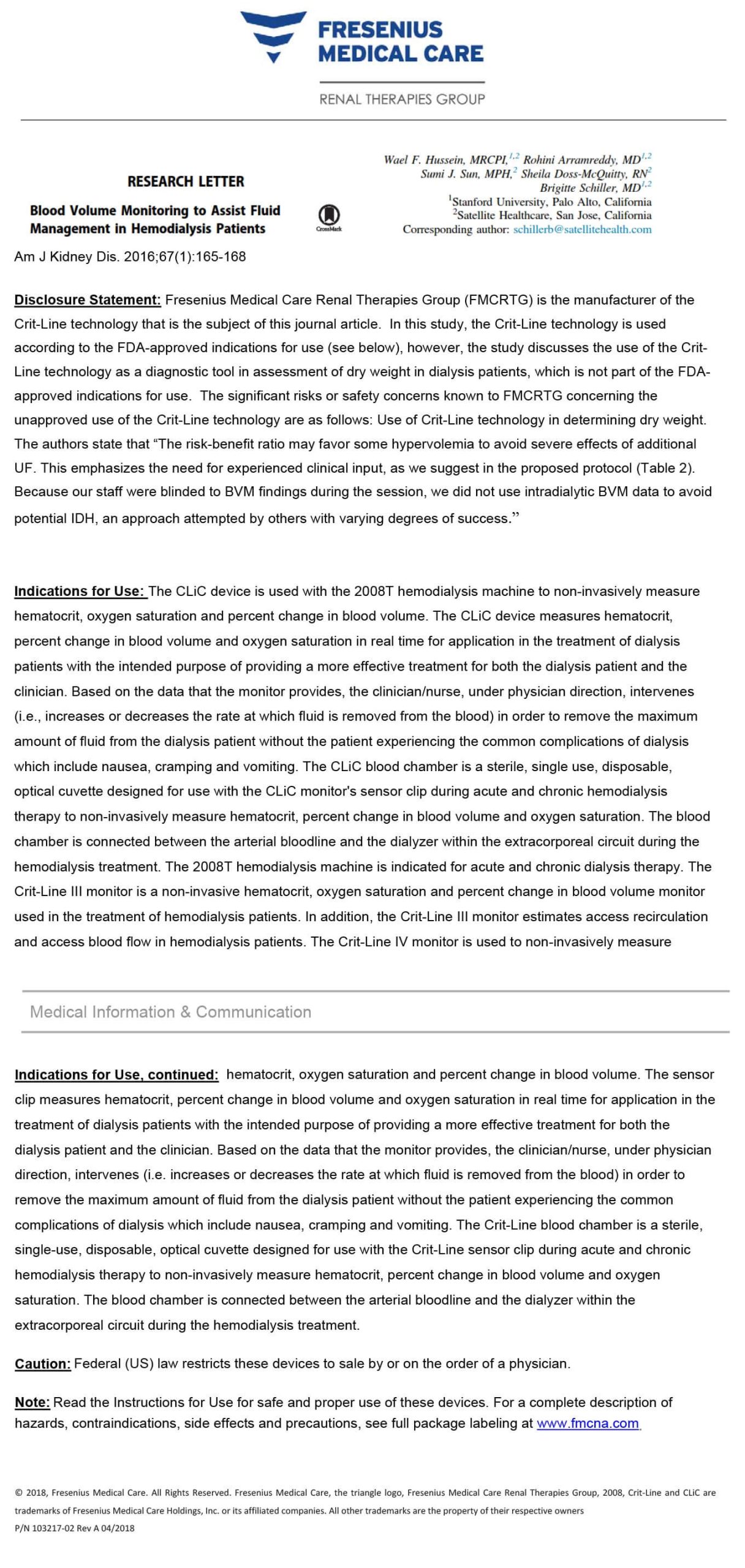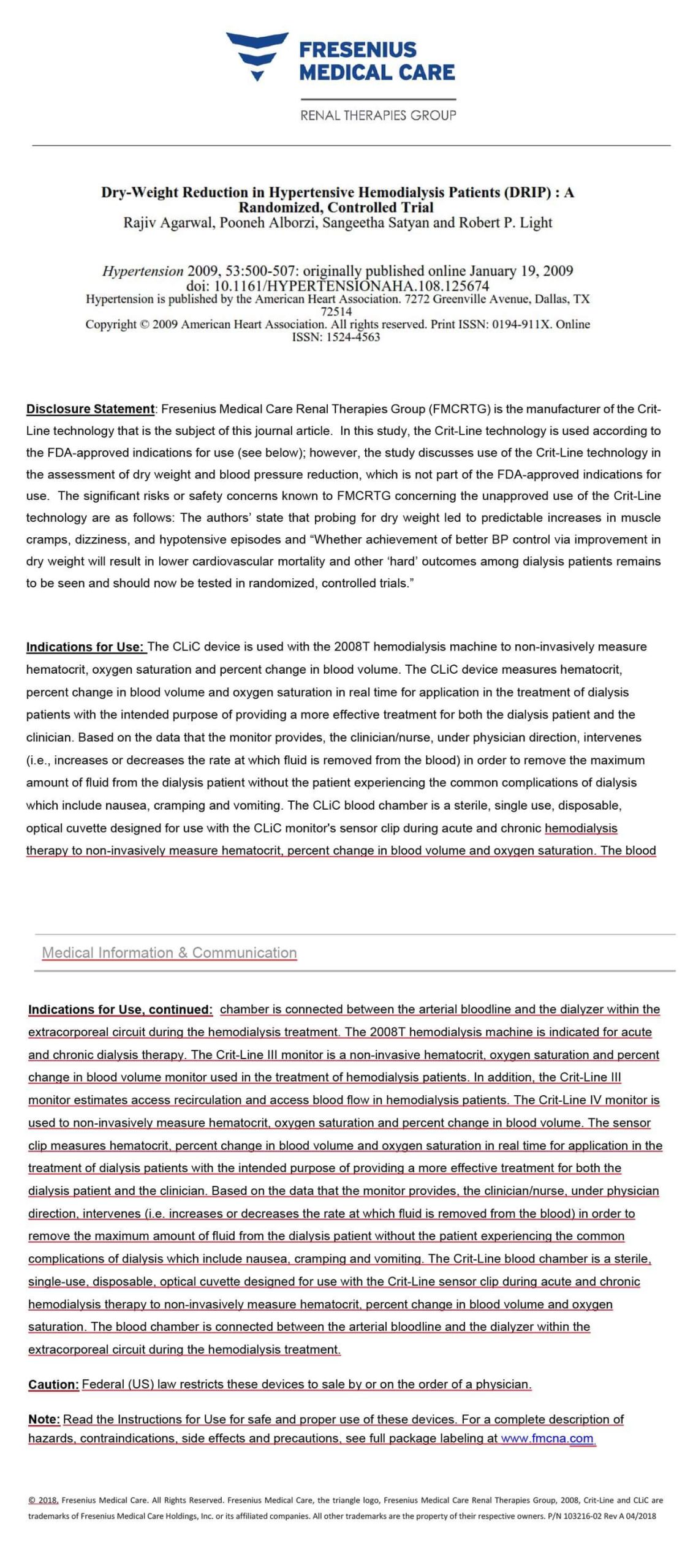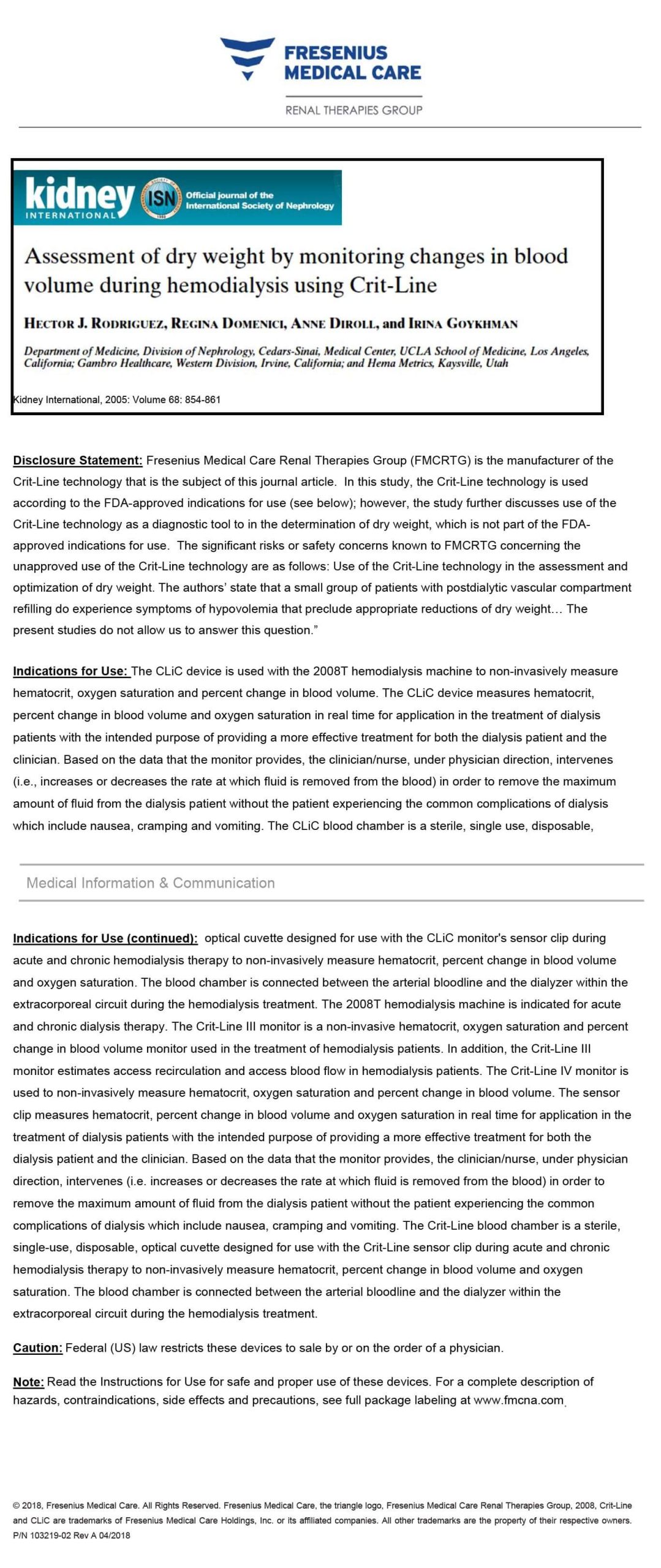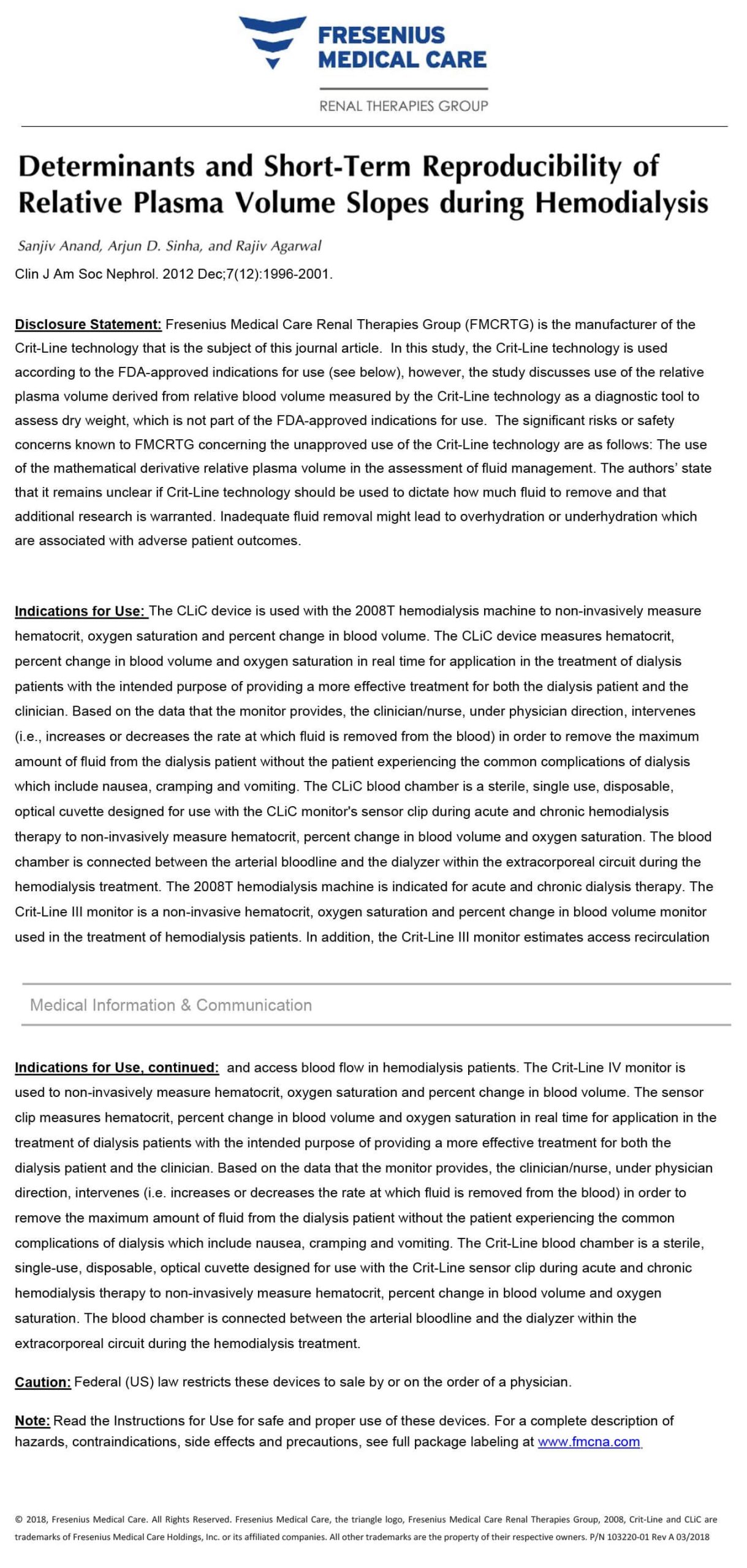Technology Resources | Tools & Real-World Use | Access Publications
Access Publications
Clinical Journal Of The American Society Of Nephrology
Disclosure↗
—————
April, 2024
Christopher El Mouhayyar, MD, Ayman Al Jurdi, MD,Tianqi Ouyang, MS,Mengyao Tang, MD, MPH, Annie Liu, DO, MPH, Nina Tolkoff-Rubin, MD, Sahir Kalim, MD, MMSc, Sagar U. Nigwekar MD, MMSc
This natural experiment study examined whether the application of blood volume monitoring (BVM with Crit-Line) to guide ultrafiltration target associates with better clinical outcomes among patients on HD hospitalized for HF….
American Society Of Nephrology (ASN) Abstract
—————
November 2023
Relative blood volume (RBV) monitoring may help guide fluid management, but real-world data on its use and potential impact in hospital admissions in chronic hemodialysis is limited. We aimed to compare hospital admissions among Fresenius Kidney are (FKC) clinics with high utilization of RBV and propensity score matched (PSM) clinics not using RBV….
Blood Purification
—————
June 24, 2014
The Crit-Line® monitor (CLM) is a device for monitoring hematocrit, oxygen saturation and change in intravascular blood volume during hemodialysis. Prior studies have evaluated CLM use in dialysis patients…
Nephrology Dialysis Transplantation
—————
September 18, 2018
Relative blood volume (RBV) monitoring is widely used in hemodialysis (HD) patients, yet the association between intradialytic RBV and mortality is unknown. Intradialytic RBV was recorded once/min during a 6-month baseline period; all-cause mortality was noted during follow-up…
Clinical Journal Of The American Society Of Nephrology
Disclosure↗
—————
April, 2016
Meyring-Wösten, Anna; Zhang, Hanjie; Ye, Xiaoling; Fuertinger, Doris H.; Chan, Lili; Kappel, Franz; Artemyev, Mikhail; Ginsberg, Nancy; Wang, Yuedong; Thijssen, Stephan; Kotanko, Peter
Intradialytic hypoxemia has been recognized for decades, but its associations with outcomes have not yet been assessed in a large patient cohort. Our retrospective cohort study was conducted between January of 2012 and January of 2015. We recorded blood oxygen saturation every minute during hemodialysis…
Scientific Reports
Disclosure↗
—————
August 17, 2017
Lili Chan, Hanjie Zhang, Anna Meyring-Wösten, Israel Campos, Doris Fuertinger, Stephan Thijssen, and Peter Kotanko
Central venous oxygen saturation (ScvO2) in the superior vena cava is predominantly determined by cardiac output, arterial oxygen content, and oxygen consumption by the upper body. While abnormal ScvO2 levels are associated with morbidity and mortality in non-uremic populations…
Current Medical Research & Opinion
Disclosure↗
—————
June 3, 2015
Paul Balter, Linda H. Ficociello, Patrice B. Taylor, Len Usvyat, Dixie-Ann Sawin, Claudy Mullon, Jose Diaz-Buxo & Paul Zabetakis
Inadequate removal of extracellular volume markedly increases blood pressure and contributes to high morbidity and mortality in hemodialysis patients. Advances in fluid management are needed to improve clinical outcomes. The aim of this quality improvement project was to examine the advantages…
American Journal Of Kidney Disease
Disclosure↗
—————
October 2, 2015
Wael F. Hussein, MRCPI, Rohini Arramreddy, MD, Sumi J. Sun, MPH, Sheila Doss-McQuitty, RN, Brigitte Schiller, MD
Blood volume (BV) monitoring (BVM) during dialysis may help fine-tune the DW.2 We aimed to compare BVM fluid status results to clinical evaluation and to estimate the proportion of patients who may have their DW changed in response to BVM results. Findings from this study would guide practical incorporation of BVM in routine practice…
Hypertension
Disclosure↗
—————
January 19, 2009
Rajiv Agarwal, Pooneh Alborzi, Sangeetha Satyan and Robert P. Light
Volume excess is thought to be important in the pathogenesis of hypertension among hemodialysis patients. To determine whether additional volume reduction will result in improvement in blood pressure (BP) among hypertensive patients on hemodialysis and to evaluate the time course of this response…
Kidney International
Disclosure↗
—————
January 19, 2009
Hector J. Rodriguez, Regina Domenici, Anne Diroll, Irina Goykhman
Routine assessment of dry weight in chronic hemodialysis patients relies primarily on clinical evaluation of patient fluid status. We evaluated whether measurement of postdialytic vascular refill could assist in the assessment of dry weight…
Clinical Journal Of The
American Society Of Nephrology
Disclosure↗
—————
January 19, 2009
Anand, Sanjiv; Sinha, Arjun D.; Agarwal, Rajiv
Hypervolemia is a major cause of morbidity, in part because of the lack of well characterized diagnostic tests. The hypothesis was that relative plasma volume (RPV) slopes are influenced by ultrafiltration rate, directly associate with improvement in arterial oxygen saturation, and are reproducible…
For additional support, including access to a wealth of publications and medical information on Crit-Line and other medical devices:
Fresenius Medical Care
Global Medical Information & Education Group
Phone: 855-616-2309, 8:30am-5pm EST
email: medical.information@freseniusmedicalcare.com
Fresenius Medical Care Global Medical Information
This online service is provided by Fresenius Medical Care. It is specifically intended to provide licensed healthcare providers with medical information on our pharmaceutical products and medical devices.

